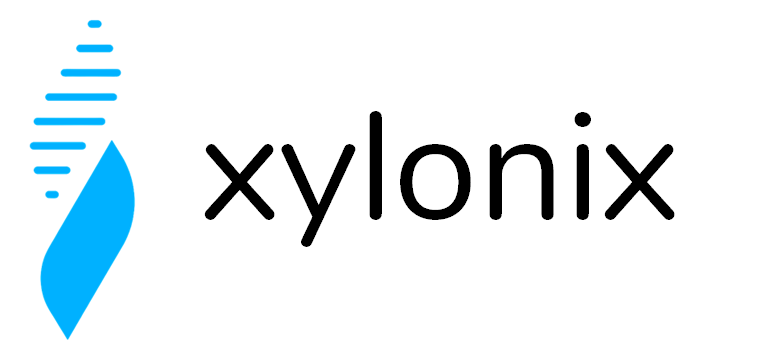NASAL HEALTH 201 Beyond the Textbook
Latest science tells a simple solution to nasal health issues - “KEEP IT CLEAN”
RUNNY NOSE, CONGESTIONS, ALLERGY - WHAT TEXTBOOKS SAY AND WHY THEY FAIL
There are many forms of nasal health issues that accompany the annoying symptoms of itchy, runny, congested nose. These issues are largely categorized into the following two categories based on their symptomatic management.
Rhinitis | Nasal inflammation from antigen exposure to virus, bacteria, mold, etc. Symptoms present fast at exposure, and resolve quickly with antigen removal. It can be allergic or non-allergic. Allergic Rhinitis falls under this category. Main treatments include immuno-suppressive medications such as antihistamines, vasomotor agents, steroids.
Sinusitis | Nasal inflammation from infection by virus, bacterial, and/or mold. Symptoms develop and resolve with infection progress, and thus tend to be slow. Main treatments include anti-microbial agents such antibacterial and antifungal drugs, but these may cause drug resistance problems leading toward persistent infection.
Despite these textbook categorizations, rhinitis and sinusitis often occur together, with rhinitis accompanying sinusitis and vice versa. And hence the paradoxical natures of the treatments for rhinitis versus sinusitis give rise to their persistence, whereby the immuno-suppressive treatments against rhinitis can promote sinusitis, while the antibiotic resistance developed from failed sinusitis treatment can promote rhinitis.
Further complications arise for those with Rhinitis Medicamentosa, the nasal congestions from overuse of the medicines mentioned above, with 10% - 40% of children and adults developing chronic allergic rhinitis, and 80% of these cases occurring before the age 20. However, a bulk of the rhinitis cases are considered non-allergic rhinitis, and did not have clear explanations or root-cause treatments, until recently.
Fortunately, recent advances in immunology suggest that simple maintenance of good nasal hygiene can help prevent and manage these.
NASAL HYGIENE = DENTAL HYGIENE, LATEST SCIENCE REVEAL (DUH…)
Our mouth and nose are an inch apart, but are directly connected, sharing the same microbiome. On dental hygiene, it is factually accepted that poor maintenance leads to gingivitis (dental inflammation), gum diseases, tooth decay, heart diseases, and even cancer and dementia. But only in recent years have medical scientists started asking if the same may be true for nasal hygiene, pointing at poor nasal hygiene as the common driver of symptoms for both rhinitis and sinusitis:
Rhinitis (allergic) | It was first reported in Jan 2023 that the main symptomatic driver of allergic rhinitis (hay fever) was the toxin produced by the nasal bacteria characteristically found in the patients with nasal allergies. In other words, an allergy fosters the growth of bad bacteria in the nose, which in turn produces the toxins that drive the symptoms of itchy, runny, congested nose.
Sinusitis | the nasal and sinus inflammation accompanying the symptoms of itchy, runny, congested nose has been widely accepted to be caused by viral or bacterial infections.
This alignment of both rhinitis and sinusitis symptoms as the consequence of poor nasal hygiene leads to the simple conclusion - that proper, ongoing nasal hygiene is critical for their prevention and management. Unfortunately, the only mainstay method for routine nasal hygiene maintenance known has been saline (salt water) rinse or spray (Nasal Health 101) which do not help against germs and viruses.
Think about it, that is like saying that you only need salt water to brush your teeth, nevermind using any toothpaste. This is why we developed our DrFredC - Hygiene Nasal Spray, a nasal spray formulation with the active synergized 0.05% Povidone-Iodine as a nasal equivalent to toothpaste, toothbrush and mouthwash combined, for routine nasal cleansing and protection against germs and viruses.
GOT STUBBORN NASAL ISSUES? STEPS TO FOLLOW
Maintenance of good nasal hygiene forms the basis of good nasal health.
But if you are experiencing discomforts or symptoms now, take the following steps.
Seek consultation and treatment from ENT doctors: It is most important that you seek medical professionals first and get accurate diagnosis and medical advice. Some nasal issues such as nasal polyps, acute bacterial sinusitis, or acute fungal sinusitis require surgeries or prescribed use of anti-bacterial or anti-fungal agents. Some nasal infections can be deadly, especially if they are fungal - do not overlook and seek medical help immediately. Tests against allergy must be also performed at your doctor’s visit, for accurate treatment and managements going forward.
Take the prescribed medicines punctually: If your doctor prescribed medications for your diagnosis, it is important that you punctually follow through the entire course, whether it be antihistamines, antibiotics, antifungals, or otherwise. Also, avoid overuse of the prescribed use of oxymetazoline or xylometazoline products that can cause Rhinitis Medicamentosa - nasal congestion from the drug overuse.
Avoid moldy air, smoking/2nd hand smoke, or usage of contaminated towels. Wash your hands before touching your nose.
Routine use of Hygiene Nasal Spray: We pick up bad germs in the nose, anytime, anywhere. Whether someone is coughing nearby, touching our nose with unwashed hands, or using a shower towel that has spoiled, the best way to keep your nose clear and stay protected is through the routine use of DrFredC Hygiene Nasal Spray. Below is the suggested way of the spray user routine.
3 times a day, when you brush your teeth.
Before you sleep at night - to prevent possible dysbiosis leading to night time congestion.
At first sight of nasal symptoms (i.e. runny, itchy nose, sneezing, blockage), try the blow & spray protocol as shown on the product box.
Try to loosen and clear the congested nose at least once - using easy home remedies: The gunk and mucus in your nasal cavity and sinus is a reservoir of germs, and it can impede successful treatment and nasal maintenance by protecting the germs from the drugs and nasal cleansing agents. Thus, I highly encourage you try the following easy home remedies regularly, if not at least once, together with the above.
Flumicil (N-acetylcysteine): this is an over-the-counter product widely available, and it helps loosen up the thick mucus for easier expelling.
Warm soup, (spicy if possible): anyone would have experienced that drinking a volume of warm, spicy soup liquifies mucus, and helps blow out most of the congestion through the nose. This happens because the spiciness and temperature increases nasal circulation, thus allowing immunity to rush in and reduce inflammation. Thus, frequent drinking of hot tea or other hot soup varietals helps you loosen and clear nasal mucus, and it will greatly improve your symptoms in both the short & long term, especially when used together with Hygiene Nasal Spray, or with the prescribed medications by your doctor.
Try detoxing: In addition to the nasal infection abovementioned, nasal or sinus swelling could also be a consequence of systemic inflammation from endotoxins (toxin from your own body) or exotoxins (toxin from outside). If your nasal issues do not response well to any of the above, it may be worth trying detox. There are many detox programs and protocols, many of which is free and can be done with kitchen ingredients. Alternatively, you can also try our patent-pending detox product DIGESTIX.
ENDING SUMMARY - Take away notes.
Take nasal hygiene more seriously, at same the level as dental hygiene.
Try our DrFredC Hygiene Nasal Spray for your daily routine nasal hygiene practice. 3+ times/day.
If you have existing symptoms, talk to your ENT doctors first and start its treatment.
For additional nasal health use - hot soups, detox products, flumicil.


